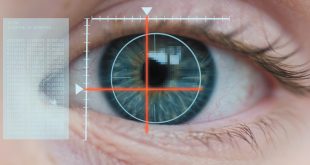 Along with blooming flowers, May also welcomes Healthy Vision Month, a time dedicated to promoting comprehensive eye exams to catch common conditions before they can become serious.
Along with blooming flowers, May also welcomes Healthy Vision Month, a time dedicated to promoting comprehensive eye exams to catch common conditions before they can become serious.
When caught early, nearly all eye health problems can be arrested, even reversed. Unlike a vision test, which measures your eyesight for prescription lenses, a comprehensive dilated eye exam enables your eye doctor to look for early signs of stealthy problems like cataracts, glaucoma, age-related macular degeneration (AMD), diabetic retinopathy, retinal detachment, growths in the eye, and high blood pressure, when they can be treated before they have a chance to cause sometimes-irreversible vision damage, even partial or total blindness.
A dilated pupil exam involves special eye drops that force the pupils to remain open in bright light, so your eye doctor can explore the back of your eye, where diseases often begin and lurk. An open pupil exam reveals important elements such as the retina, optic nerve, protein buildup and vessel health. The exam is painless and the pupils generally return to normal size and function in about 4-6 hours. Most people are able to drive with high-quality sunglasses afterward, but if you have never had a dilated exam before, it is wise to have someone drive you so you know exactly how the dilation will affect your outside vision.
When to Schedule an Eye Exam
1. You are age 40 – Getting a baseline exam at age 40 provides a record for your eye doctor. Having an established record of your healthy eye allows your doctor to compare it against future tests so any changes can be noted immediately.
2. You’re age 60 or older – While certain conditions can occur at any age, the risk associated with most common eye diseases increases with age. People ages 60 and older should get a dilated eye exam every one to two years. Your eye doctor will assess your overall health and the condition of your eyes and provide guidance on how often you should get a comprehensive exam going forward.
3. You’re Black or Hispanic/Latino – Black and
Hispanic/Latino people experience an elevated risk of glaucoma and diabetic retinopathy, so regular dilated exams should begin at age 40. Certain eye diseases can cause severe and permanent vision loss without early symptoms, so discovery and treatment are crucial to protecting your eyesight.
4. You have diabetes – People with diabetes should have a dilated eye exam every year, regardless of age. If you have been diagnosed with diabetes and haven’t yet been seen by an eye doctor, make an appointment today. Diabetes contributes to a host of vision problems, and the earliest possible diagnosis and treatment of these issues provides the best protection against vision loss.
5. You have a history – Having a family history of certain eye diseases or conditions, or a personal history of eye surgery, blunt force trauma to the eye, retinal detachment, or a congenital disorder, may warrant earlier or more frequent testing.
6. You have symptoms – If you have sudden changes in vision, eye pain, an eye injury, or are noticing new floaters, don’t wait – call your eye
doctor immediately. If symptoms like flashes of light, eye pain, swelling or sudden vision changes occur after office hours, seek treatment at the ER. When treating and preventing eye and vision problems, time can be of the essence.
Remember, if you’re age 40-60 or older and haven’t had a dilated exam in a while (or ever), call your local Lake Eye (a US Eye Company) for an appointment suited to your schedule. Our friendly staff and experienced doctors will make sure your eyes are healthy, happy and ready for every one of life’s adventures.
Lake Eye Associates
352-775-1533
www.LakeEye.com
 Central Florida Health and Wellness Magazine Health and Wellness Articles of the Villages
Central Florida Health and Wellness Magazine Health and Wellness Articles of the Villages



